20 Best Essential Oils For Skin Care
Discover nature’s top remedies to rejuvenate, soothe, and enhance your natural glow daily!
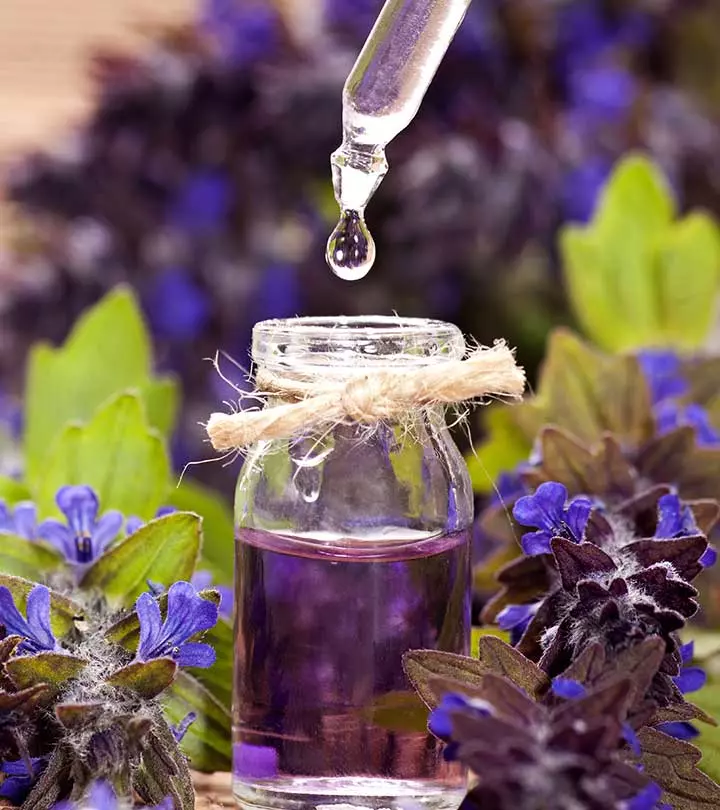
Image: Shutterstock
We often find ourselves guilty of overlooking the simple yet essential pleasures of life. Not because we want to, but because we are so caught up with other things around us. We do the same when it comes to skin care. We fill our makeup kits with the best concealers, foundations, serums, night creams, and what not. But we overlook the key components of a good skin care routine – essential oils. Yes! And I will tell you why and what are the best essential oils for skin care. Read on.
In This Article
Why Essential Oils Are Important For Skin Care: Benefits Of Essential Oils
What makes essential oils “essential?” Do you know that according to a study, of the 98 essential oils that are recommended for topical use, 88 can heal skin infections (1)? Amazing, right? Let’s check out some more benefits:
1. Effective In Treating Acne
A clinical trial showed that tea tree essential oil helped in reducing inflammation caused by acne and had fewer side effects compared to benzoyl peroxide, the most common topical medicine for acne (2). Even Plai oil demonstrated antimicrobial activity against a wide range of bacteria, including P. acnes (3).
2. They Are Antifungal
A study published in Microbios confirmed that essential oils, such as geranium, orange, patchouli, lemongrass, palmarosa, and Aegle marmelos, are active against 12 strains of fungi and can inhibit their growth (4).
3. They Contain Antioxidants
And that’s why the topical application of several essential oils can protect your skin from the damaging effects of the harmful free radicals. A study shows that oregano, thyme, and basil essential oils keep your skin healthy by destroying the free radicals (5).
4. They Reduce Inflammation
A 2014 study shows that rosemary essential oil contains antioxidants and reduces skin inflammation and boosts circulation. And this is because of the natural oxidative defenses of the essential oil (6).
5. Have Anti-aging Benefits
As per a study, lemon essential oil helps reduce the signs of aging. It protects your skin from sun damage (that causes signs of aging) and reduces oxidative stress on your skin surface (7).
Now, the question is, how can you use essential oils? How can you integrate them into your skin care routine? We have discussed that right below.
How To Use Essential Oils For Skin Care
There are two things that you can do:
- Use The Essential Oil As A Face Oil: Simply mix it with any carrier oil and use it on your face or dilute it with water and then apply.
- Add It To Your Face Mask: Add a few drops to your regular face mask and then use it.
There are hundreds of essential oils available in this world. And practically speaking, it’s not possible for any of us to use all of them. What we can do is choose a few essential oils according to our skin type and use them. Check out this list of essential oils you can include in your skin care routine.
What Are The Best Essential Oils For Skin Care?
1. Tea Tree Oil: For Preventing Breakouts
Tea tree oil is very useful in controlling acne. It exhibits antimicrobial activity against P. acnes, the acne-causing bacteria, and helps in keeping the skin clear and preventing further breakouts (8).
How To Use Tea Tree Oil For Skin Care
You Will Need
- 5-6 drops of tea tree oil
- 1 tablespoon honey
What You Have To Do
- Mix the oil with honey and apply to your face.
- Wait for at least 15-20 minutes and then wash off.
How Often Should You Do This?
Once daily.
2. Neroli Oil: For Antifungal Benefits
Neroli oil is extracted from the flowers of the orange fruit (bitter orange) and has an enchanting citrus and floral aroma. Researchers found that this oil had a robust antifungal activity as compared to antibiotics (17). In fact, bitter orange can also rebuild the elasticity of your skin (18).
How To Use Neroli Oil For Skin Care
You Will Need
- 1 cup rosewater (you can boil rose petals and extract the water)
- 1 tablespoon freshly scooped aloe vera
- 10 drops of neroli oil (use 3 drops per 10mL liquid)
What You Have To Do
- Put all the ingredients in a spray bottle.
- Shake well to mix the products.
- Spritz the mist on your face after a shower and whenever you wash your face.
How Often Should You Do This?
Every day as needed.
3. Rosemary Oil: For Thorough Cleansing
According to a 2014 study, rosemary oil is enriched with oxidative defenses that help in preventing harmful free radicals from damaging your skin. It also boosts circulation and reduces inflammation (13).
How To Use Rosemary Oil For Skin Care
You Will Need
- 1 tablespoon aloe vera gel
- 6 drops of rosemary oil
What You Have To Do
- Mix aloe vera gel and the oil.
- Apply it all over your face and massage for a while.
- Leave it on for 15-20 minutes and then wash.
How Often Should You Do This?
Once daily.
4. Lavender Oil: For Bright Skin
As per a study, lavender oil has anti-inflammatory properties (9). This means it can reduce skin irritation, redness, and skin discoloration, restore your natural skin tone, and make it bright.
How To Use Lavender Oil For Skin Care
You Will Need
- 2-3 drops of lavender oil
- 5 tablespoons aloe vera gel
What You Have To Do
- Mix the oil with aloe vera gel.
- Apply it on the face, focusing on the affected areas.
- Wash it off after 20 minutes.
How Often Should You Do This?
Once daily.
5. Rosehip Oil: For Wrinkles
Rosehip oil contains antioxidants and essential fatty acids that help in cell regeneration, making those fine lines and crow’s feet disappear (10).
How To Use Rosehip Oil For Skin Care
You Will Need
- 1 teaspoon rosehip oil
- 3 teaspoons aloe vera gel
- 5 drops of lavender oil
- 5 drops of lemon oil
What You Have To Do
- Put all the ingredients in a glass bottle and shake well.
- Before retiring to bed, massage the blend around your eyes.
- Wash it off in the morning.
How Often Should You Do This?
Every day.
6. Clary Sage Oil: For Wound Healing
Clary sage oil is antibacterial. A study found that it was very effective against Staphylococcus aureus – bacteria that cause pimples, boils, and carbuncles. Applying clary sage oil on the affected area helps in eliminating the bacteria (11).
How To Use Clary Sage For Skin Care
You Will Need
- Carrier oil (argan, jojoba, almond, coconut, or olive oils)
- Clary sage oil
Note: Use 2 drops of clary sage oil per 10mL of carrier oil.
What You Have To Do
- Mix the essential oil with the carrier oil as per the ratio.
- Apply it to your face or the affected area.
- Leave it on overnight and wash it off the next morning.
How Often Should You Do This?
Every day until the condition heals.
7. Geranium Oil: For Oily Skin
Geranium oil is non-irritant. It is non-toxic and non-sensitizing. And that is why it is suitable for almost all skin types. Moreover, it helps treat a diverse range of skin issues, such as eczema, clogged and congested skin, and dermatitis (12).
How To Use Geranium Oil For Skin Care
You Will Need
- 1 tablespoon coconut oil
- 3 drops of geranium oil
What You Have To Do
- Mix both the oils and apply to your face.
- Leave it on overnight for best results.
How Often Should You Do This?
Once daily or every alternate day.
9. Lemon Oil: For Anti-aging Benefits
A study conducted in 1999 found that lemon oil could reduce the effects of oxidative and nitrosative stress on your skin. When applied topically, lemon oil inhibited the reactions of free radicals that cause signs of aging (14).
How To Use Lemon Oil For Skin Care
You Will Need
- 20 drops of lemon oil
- ½ cup safflower oil
What You Have To Do
- Blend the two oils and store in a bottle.
- Before sleeping, massage the oil on your face and neck. You can even massage it on other body parts.
- Wash off next day.
How Often Should You Do This?
Once daily.
10. Sandalwood Oil: For Treating Skin Infections
Sandalwood oil has been used for ages for treating skin conditions like rashes, acne, boils, and other infections. A study found that this oil could also be a chemopreventive agent for skin cancer, which means it can delay, inhibit, reverse or reduce the risk of skin cancer (15).
How To Use Sandalwood Oil For Skin Care
You Will Need
- 1 tablespoon sweet almond oil
- 3-4 drops of sandalwood oil
- 3-4 drops of lemon oil
What You Have To Do
- Blend the oils and massage on your face and neck.
- Leave it on for 30 minutes (or as long as you want) and then wash off.
How Often Should You Do This?
Once daily.
11. Ylang Ylang Oil: For Promoting Skin Renewal
It is known as a skin preserver for multiple reasons. Researchers have found that ylang ylang oil has antioxidants that promote skin renewal by repairing the lipids and proteins in your skin. The antioxidants of this oil have free radical scavenging capacity that prevents signs of aging. And that’s why you will find ylang ylang oil in many anti-aging cosmetics (16).
How To Use Ylang Ylang Oil For Skin Care
You Will Need
- 1 teaspoon coconut or jojoba oil (unrefined)
- 2-3 drops of ylang-ylang oil
What You Have To Do
- Take the two oils carefully in your palm.
- Mix with your fingers and then massage all over your face and neck.
- Do this before going to bed.
- Wash your face the next day.
How Often Should You Do This?
Once every day.
12. Pomegranate Oil: For Preventing Photoaging
Pomegranate oil contains polyphenols, which are potent antioxidants and anti-inflammatory. They help minimize the effects of photoaging (sunspots) and prevent the growth of skin cancer cells (19).
How To Use Pomegranate Oil For Skin Care
You Will Need
- 1 teaspoon pomegranate oil
- 1 tablespoon jojoba oil (or any other carrier oil)
- 1 teaspoon rosehip oil
- 5 drops of carrot seed oil
- 10 drops of lavender oil
What You Have To Do
- Mix all the oils. Blend well and store in a jar.
- Massage on your face just before going to bed.
- Wash it off next day.
How Often Should You Do This?
Every day.
13. Frankincense Oil: For Even Skin Tone
Surgery scars, stretch marks, and other marks left by acne and wounds make your skin look dull. Frankincense oil was found to process tissue remodeling in the skin. Studies indicate that it has a steroid-like pentacyclic triterpene structure that soothes irritated skin and helps you get an even skin tone (20).
How To Use Frankincense Oil For Skin Care
You Will Need
- 1 tablespoon unrefined coconut oil
- 4 drops of frankincense oil
What You Have To Do
- Take a container and blend the coconut oil with frankincense oil.
- Store the moisturizer in a container and keep it in a cool, dry place.
- Apply after washing your face.
How Often Should You Do This?
Twice a day.
14. Rose Oil: For Better Absorption Of Skin Nutrients
Rose oil has an exceptional ability to improve your skin permeability dramatically. According to a 2010 study, the lipophilic character of rose oil opens up your skin so that it can absorb all the essential nutrients and chemicals better. This means, when mixed with your beauty product, it can improve its efficacy (21).
How To Use Rose Oil For Skin Care
You Will Need
- Your favorite moisturizer or skin cream
- Rose oil (3 drops per 10mL of the product)
What You Have To Do
- Mix the rose oil with your product as per the ratio.
- Apply it as per your skin care routine.
How Often Should You Do This?
Regularly.
15. Patchouli Oil: For Treating Infections
Cuts and wounds on the skin can easily get infected. Patchouli oil has antiseptic properties, which prevent the cuts and sores from getting infected. It can also prevent skin infections, such as athlete’s foot (22).
How To Use Patchouli Oil For Skin Care
You Will Need
- 1/2 cup olive oil
- ¼ cup coconut oil
- ¼ cup beeswax
- 15 drops of patchouli oil
- 10 drops of white fir oil
What You Have To Do
- Mix all the ingredients in a bowl.
- Use it as a skin cream and apply on your hands and other areas.
- Gently massage on the skin and leave it on overnight.
How Often Should You Do This?
Every alternative day.
16. Roman Chamomile: For Treating Rashes
Roman chamomile is excellent for treating skin rashes caused by eczema and other rashes, including chicken pox, wounds, poison ivy, and diaper rashes, and skin conditions such as cracked nipples. The flavonoids and terpenoids in Roman chamomile give it its healing properties (23).
How To Use Roman Chamomile For Skin Care
You Will Need
- 16 tablespoons baking soda
- 8 tablespoons citric acid
- 8 tablespoons cornstarch
- 8 tablespoons Epsom salt
- ¾ teaspoon water
- 2 teaspoons Roman chamomile oil
- 2 teaspoons lavender oil
- 2 ½ teaspoons almond oil
- 1 soap mold
What You Have To Do
- Mix all the ingredients.
- Put the mixture into the mold and press it. Let it sit for 24 hours.
- When the bath bomb is ready, prepare a warm bath soak and put one bath bomb in it.
- Relax and enjoy the healing effects of the bath bomb on your skin.
How Often Should You Do This?
Twice or thrice a week.
17. Bergamot Oil: For Inhibiting Bacterial Growth
This mood enhancing oil has been an integral part of traditional Chinese medicine. Bergamot oil is widely used in soaps as it can inhibit the growth of bacteria and fungi that cause skin issues. It also has a notable effect on Candida infections (yeast infections) (24). It helps to get rid of skin irritation and is a potent disinfectant (25), (26).
How To Use Bergamot Oil For Skin Care
You Will Need
20 drops of bergamot oil
What You Have To Do
- Fill your bathtub with lukewarm water.
- Mix the essential oil in the water.
- You can add bath salts for added benefits.
- Soak yourself and enjoy a relaxing bath.
How Often Should You Do This?
Thrice a week.
18. Cinnamon Oil: For Skin Inflammation
Cinnamon oil is widely used in skin care products. It contains cinnamaldehyde that has anti-inflammatory properties and can treat inflammatory skin conditions such as rashes, itching, eczema, dermatitis, etc. (27).
How To Use Cinnamon Oil For Skin Care
You Will Need
- 3 tablespoons honey
- 10 drops of cinnamon oil
What You Have To Do
- Mix the oil with honey.
- Apply on your face or just the affected area.
- Leave it for 15-20 minutes and then wash.
How Often Should You Do This?
Once a day.
19. Cypress Oil: For Antiseptic Benefits
Want to heal cuts, bruises, and wounds faster? If yes, go for cypress oil. This oil can inhibit bacterial growth (28). And because of its bacteria-killing property, it is commonly used for making medicated soaps.
How To Use Cypress Oil For Skin Care
You Will Need
- 1 tablespoon avocado oil
- 3-4 drops of cypress oil
What You Have To Do
- Blend the two oils and apply to the affected area.
- Let it stay for at least 30 minutes or as long as you want (you can leave it on overnight).
- Wash it off the next day.
How Often Should You Do This?
Daily, until the condition is healed.
20. Carrot Seed Oil: A Natural Sunscreen
This oil is often used in aromatherapy for its sun-protecting properties. It supplies vitamin A to your skin, which reduces your skin’s sensitivity to sun rays and prevents tanning (29).
How To Use Carrot Seed Oil For Skin Care
You Will Need
- 1 tablespoon shea butter
- 2 drops of carrot seed oil
- 2 drops of lemon oil
- 2 drops of frankincense oil
What You Have To Do
- Mix the oils in the butter and blend well.
- Apply it to the face and neck at night.
- Wash it off the next day.
How Often Should You Do This?
Regularly.
21. Peppermint Oil: For Dandruff Treatment
Peppermint oil contains menthol, which is very useful for treating dandruff and stimulating the scalp (30). Another study found that peppermint oil boosted hair growth (31).
You Will Need
- 2 tablespoons organic coconut oil
- 4 tablespoons castor oil
- 10 drops of peppermint oil
What You Have To Do
- Melt the coconut oil and then add castor oil to it. Blend well and let it cool down a bit.
- Add peppermint oil and pour the mixture into a bottle.
- Massage the oil into your scalp for 5 minutes and leave it on for at least 30 minutes.
- Use a mild shampoo to wash your scalp.
How Often Should You Do This?
Twice or thrice a week.
These are some of the best essential oils that you can use on your skin. But before you include any of these amazing essential oils in your skin care regimen, let us take you through the buying guide to pick the correct essential oil for your needs.
Things To Consider While Buying Essential Oils For Skin Care
- Skin Type
Essentials oils are wonderful products to add as a booster to your regular moisturizer or serum. But, make sure you use the right oil according to your skin type. As essential oils are quite concentrated and potent, they can cause more harm than good if the wrong oil is applied. Some great essential oils for dry skin are sandalwood oil and lavender oil. They work wonderfully on sensitive skin as well. Rosemary and frankincense oils are beneficial for oily skin.
- Skin Concern
Tea tree oil and lemongrass oil are known to work well on acne-prone skin. There are many skin-related issues that can be fought with the right combination of essential oils. They also work quite quickly as they are potent. Therefore, it is better to consult an expert before you mix different essential oils.
- Application
Take proper precautions while using these oils. These essential oils are concentrated extracts of herbs and fruits. So before buying them, we suggest that you educate yourself on the correct way of application. Essential oils are usually not meant to be ingested. If you need to treat a specific condition like acne, spot application is recommended. For any other topical use, you can mix it with your regular cream or lotion for added benefits.
Another popular way to use essential oils is to add them to bathwater. This is especially useful if you are trying to apply them to a hard-to-reach region like your back. Adding about ten drops to running bath water creates a calming spa-like effect.
When using essential oils, there are specific factors that you should keep in mind.
Precautions To Take When Using Essential Oils For Skin
- Although essential oils are natural, there are risks of allergic reactions. Always do a patch test before using any essential oil.
- Never use an essential oil in its purest form. Dilute it with water or any carrier oil or mix it with your moisturizer. Essential oils are pretty strong and may cause adverse reactions if they are not diluted.
- Some oils, such as lemon oil and other citrus oils, are phototoxic. This means that they may have negative reactions when exposed to sunlight. Hence, it is better to use such oils at night.
- Never take essential oils internally. These are only meant for topical use.
- Children, pregnant ladies, and people who have high blood pressure or epilepsy should be careful with essential oils. Never use one without the doctor’s permission.
- Essential oils are extremely volatile. When exposed to light and heat, they may get damaged. That’s why they come in dark bottles. Always store them away from sunlight and heat.
Essential oils help in effectively treating skin problems like acne, dryness, aging signs, dullness, etc. In addition, these oils help in healing the damage caused due to excessive makeup products. Incorporating these essential oils into your skin care routine will help you achieve healthy, glowing skin. Most of them are enriched with antioxidants that reduce the free radical damages. These essential oils for skin are vegan, cruelty-free, and provide long-lasting results. However, some products may not be suitable for every skin type. Pick the best essential oil that suits your skin type, with the help of our buying guide.
Frequently Asked Questions
Are there any essential oils to avoid or be cautious of when it comes to skincare?
Avoid any essential oils if you are allergic to their plant, seeds, or fruit. It is recommended to be cautious about citrus oils like lemon and orange essential oils, as they may react to UV light and cause skin irritation. Make sure to use a generous amount of sunscreen before stepping out when using these oils for skincare.
What is the recommended dilution ratio when using essential oils for skin care?
We recommend a 0.5-1% dilution for using essential oils for skin care, especially on the sensitive areas of the skin, like your face and underarms. It means that you may add 3-6 drops of essential oils per 30 ml of carrier oil.
Can the frequency of using essential oils on the skin change over time?
Yes, how often you use essential oils may change overtime as your skin’s tolerance to them may change. When you start using an essential oil, it is recommended to use it twice a week to get your skin accustomed to it. Then increase its usage depending on your skin type and concerns. Once you notice visible improvements in your skin texture, consult your dermatologist to know how often to use the oil. The frequency of using these oils may also change according to the seasons. For instance, if you are using an essential oil to combat dryness, you may need it more during the winter.
Read full bio of Vd. Naveen Sharma
Read full bio of Ramona Sinha




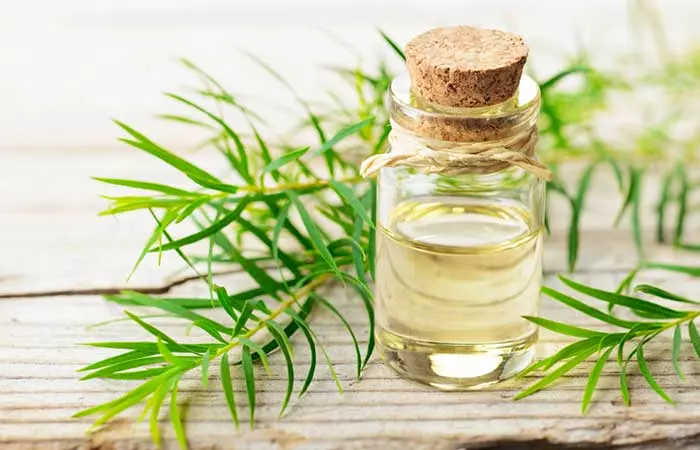

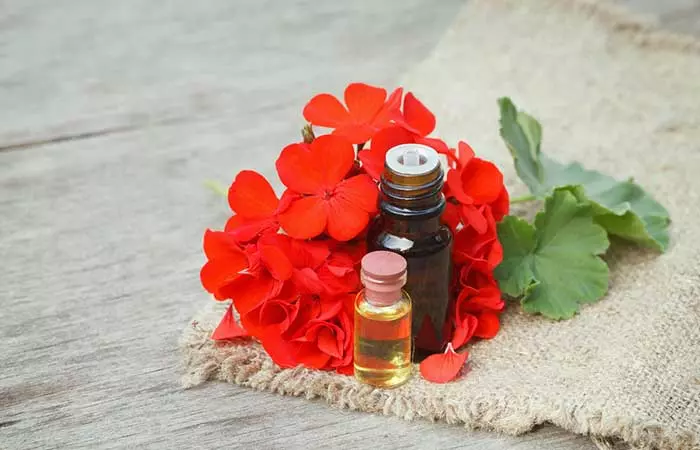
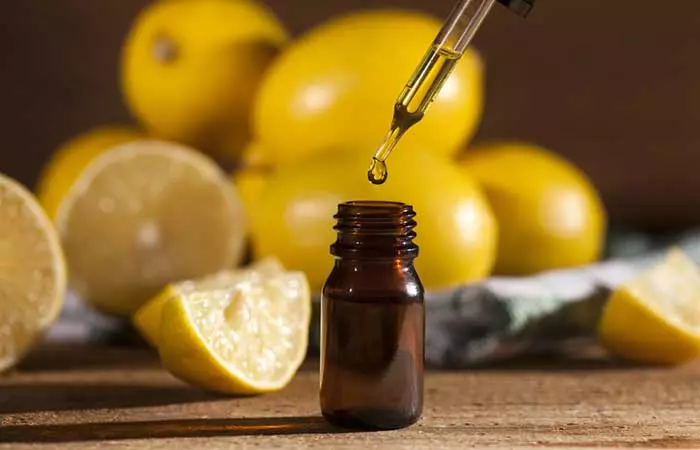
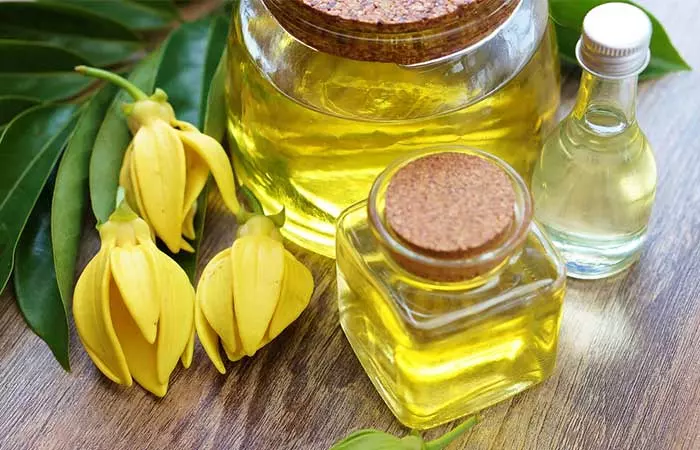
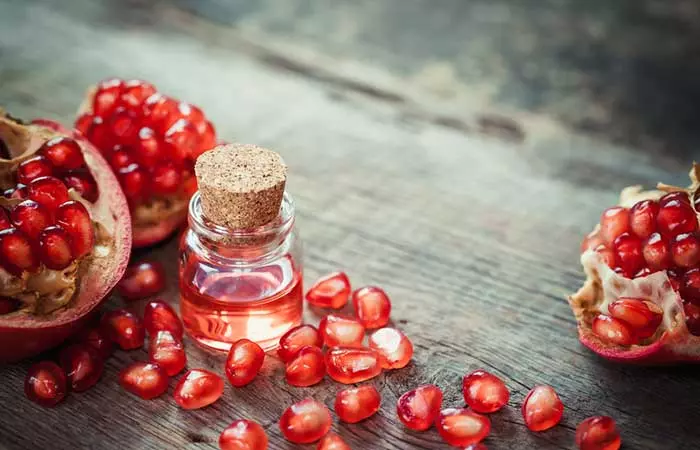
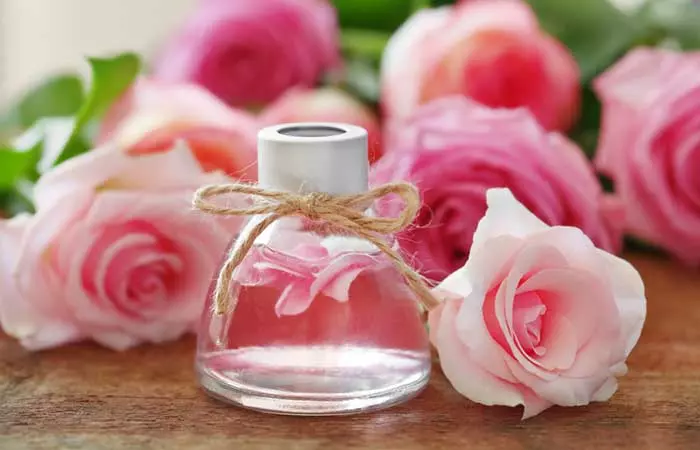
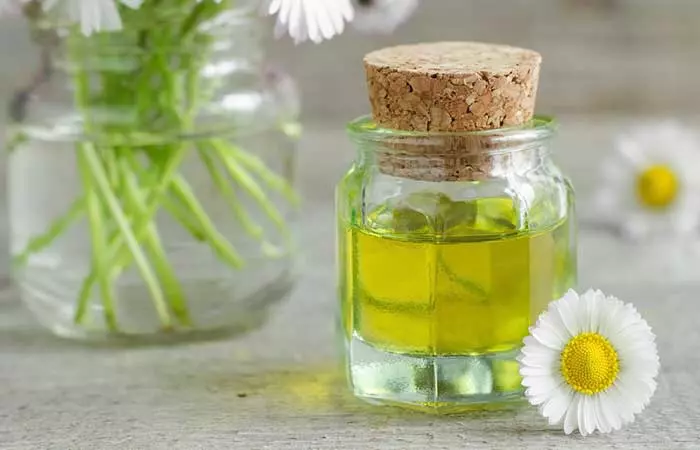
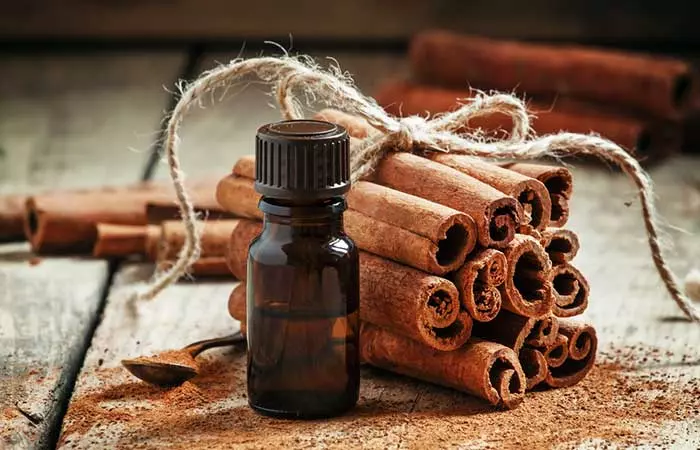
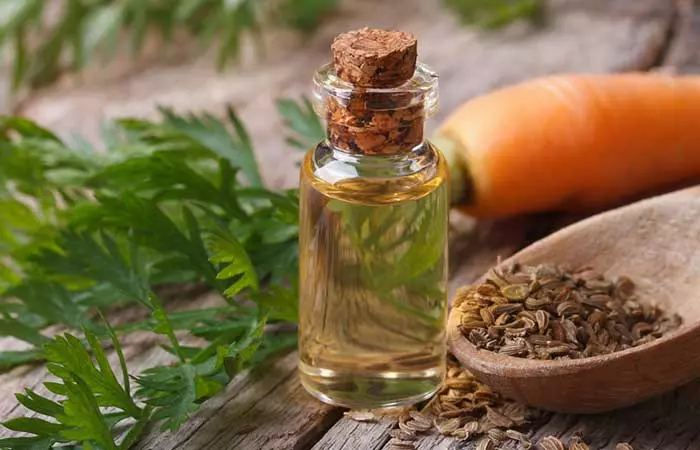


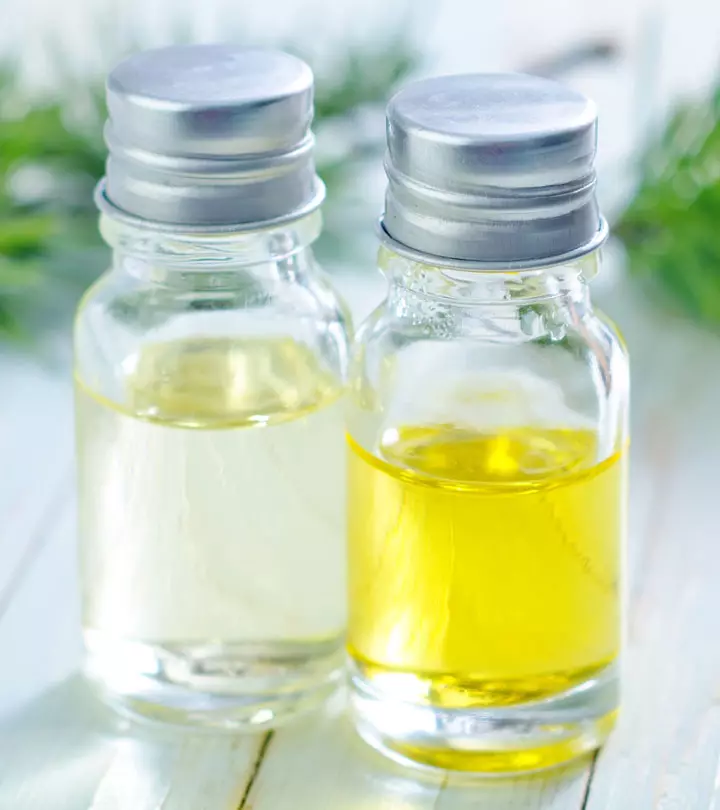
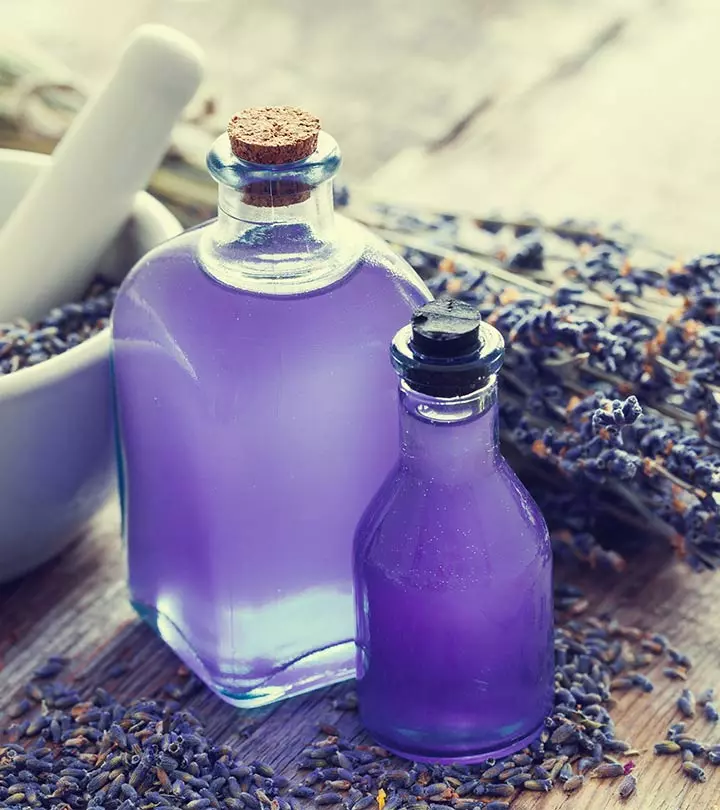
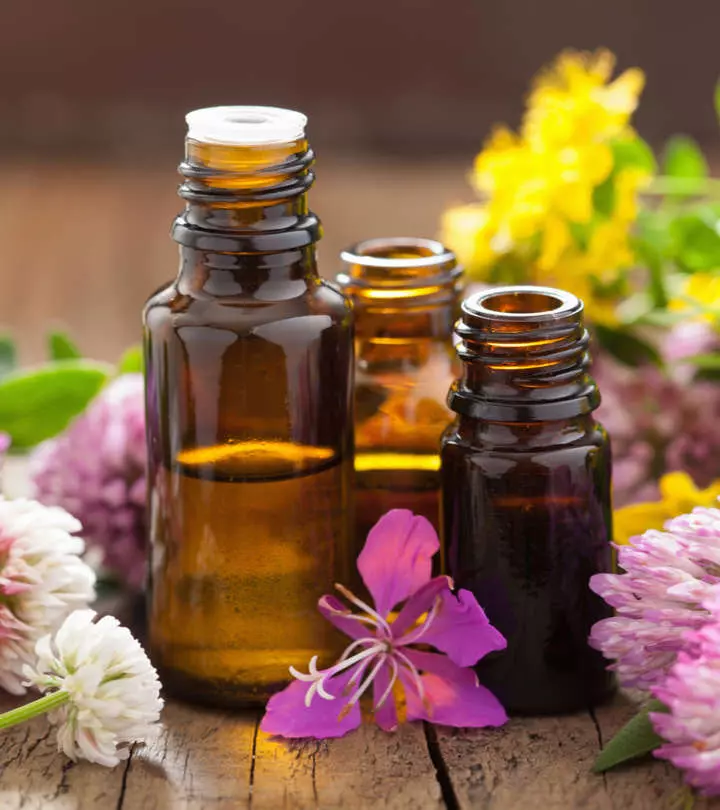
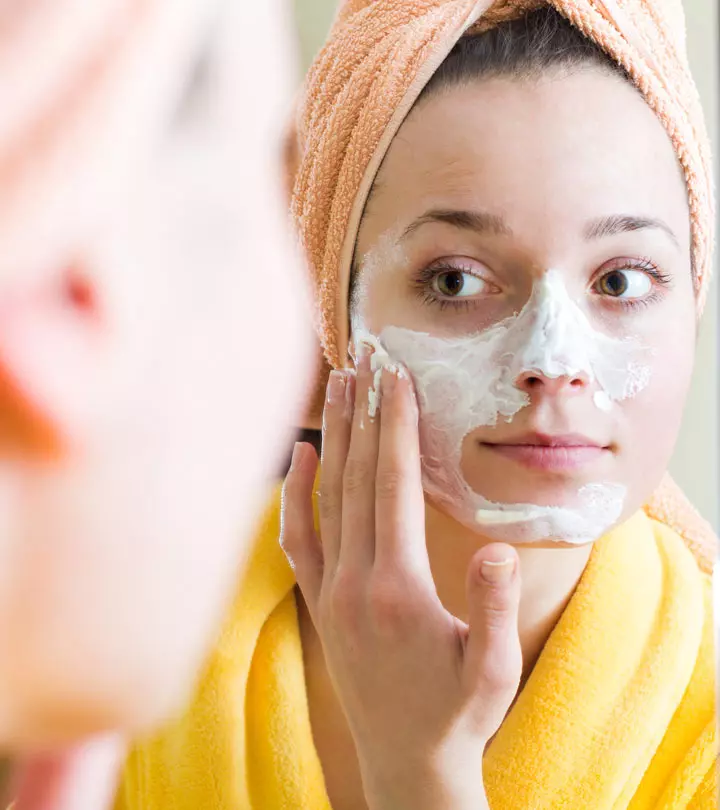













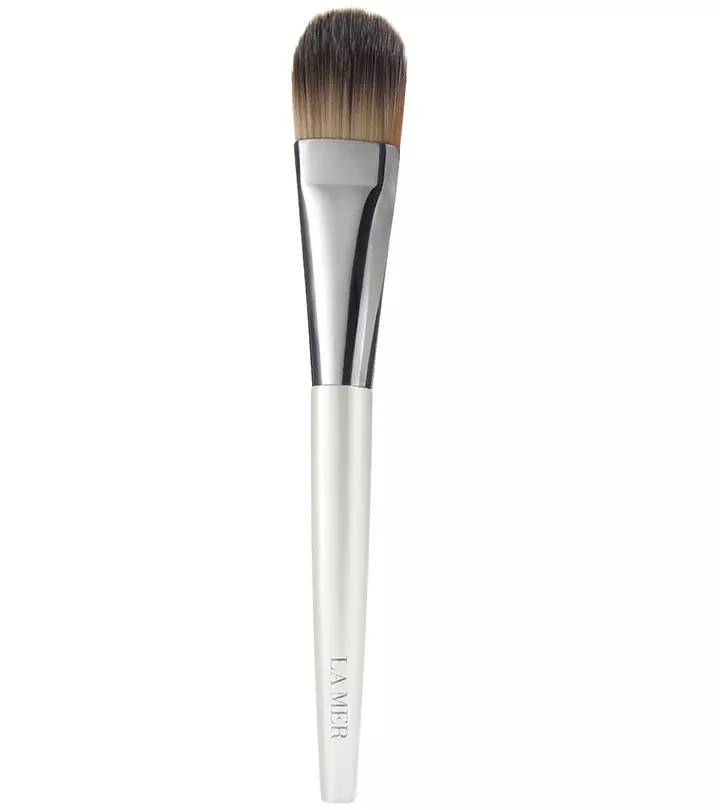

Community Experiences
Join the conversation and become a part of our empowering community! Share your stories, experiences, and insights to connect with other beauty, lifestyle, and health enthusiasts.